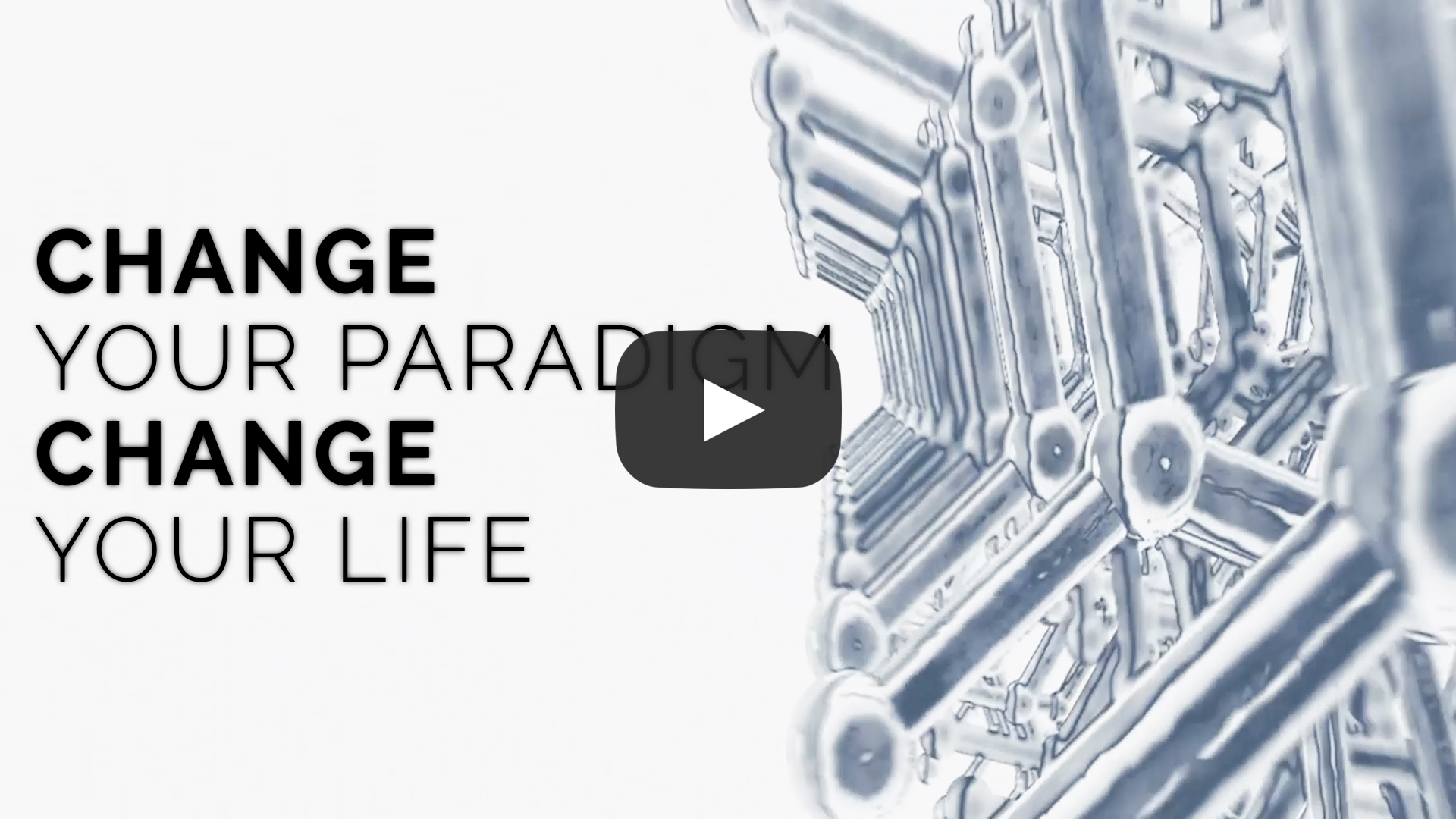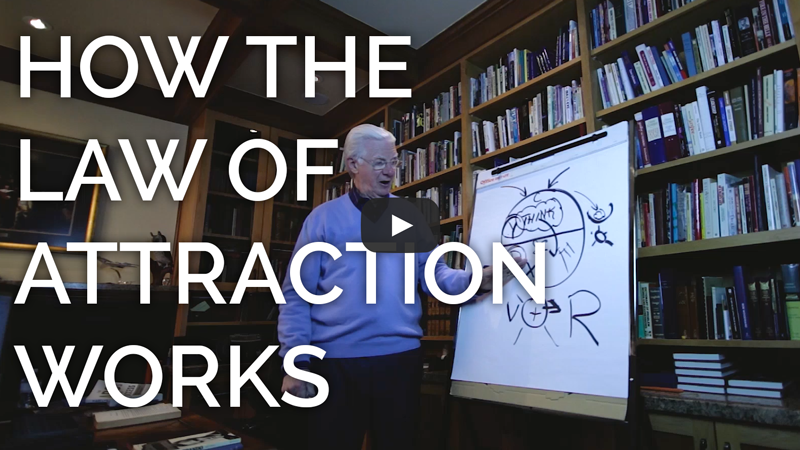
I have a paradigm.
So do you.
To continue to grow, though, we must lead ourselves outside of our paradigms.
The following are five common, but often subtle, paradigms that affect the outcome of our lives. Take a look to see which ones might be shaping your life.
1. Paradigm: Everything is fine.
Life isn’t a struggle, but it’s not anything to write home about either. You’ve accepted that this is the best you’re going to get in life. Maybe because you’ve settled or you feel you don’t deserve more.
Or perhaps you just haven’t invested the time to think about what you truly want. Without a goal to pull you forward, you’ve resigned yourself to the status quo.
This paradigm is pervasive; however, it is subtly different for everyone. So don’t automatically push it aside if, at first blush, you don’t think it applies to you. Sit with it for a while to see if anything comes up.
Breakthrough Perspective: I am happy, but not satisfied.
Just like a seed in the ground wants more sunlight, nutrients and water, we all have a natural desire to grow and evolve.
The law of our being is to know more, to do more and to be more. Each time we achieve something, another desire for even greater good develops naturally—if we allow it to.
As you’ll see in just a minute, adopting a new perspective is about telling your truth. In this case, it’s acknowledging that you’re actually not satisfied with “good enough.” You want an extraordinary life; you want more for yourself and the world.
2. Paradigm: I’ve reached my income limit.
You reached a particular financial position and no matter how hard you work or what you do, your income pretty much stays the same. You feel stuck and can’t figure out how to get over this financial hurdle.
Breakthrough Perspective: I am excited about my financial future.
You can earn more money than you’ve ever dreamed of. However, you can’t do it by talking about, thinking, or feeling there’s a ceiling on your income.
Dwelling on your stagnated income only brings more stagnation. The Universe responds to what you believe.
Increased income can come only from right and positive thinking, and well-conceived and properly executed plans.
Start by getting a sheet of paper and writing down all the negative beliefs you have about money and your ability to earn more of it. Then, let those beliefs go by shredding or burning the paper.
Re-direct your mind to develop a prosperity consciousness, and the money you desire will be yours.
3. Paradigm: My best days are behind me.
Many people, particularly in their 40s and beyond, feel like they’ve already accomplished what they can, and there is not enough time left for them to start a new career, relationship, improve their health, or accumulate money.
This belief system will hit home for you if, on some level, you have given up on your goals. You may have a “why bother” kind of attitude.
Breakthrough Perspective: My best years are yet to come.
In The 100-Year Lifestyle, Dr. Eric Plasker says that your body has the hardware to live 100 years and beyond.
If you knew you’d live to 100, how would you change your life? Would you still feel you’ve already accomplished everything you can?
Our life span is increasing all the time. Expect to be prosperous, happy and healthy for 100 years and beyond. Adopting this new perspective does nothing but good for your life today and in the years to come.
I’m nearly 82 years old, and I have huge goals and more energy than many 30-year-olds. And I don’t plan to slow down anytime soon.
So if you feel like your best days are behind you, stop wasting your life and get back in the game. Get ready for your next big thing!
4. Paradigm: I am unlovable.
You feel lonely and believe you’ll never find a loving partner. You might think that if you had someone who loved you, your life would be a lot better.
Or maybe you’re very outgoing and have a great sense of humor, but inside you’re sad and lonely because you secretly feel you’re unlovable. You might go in and out of relationships because you often settle for the first person who shows interest.
Perhaps you believe you’re unlovable because you are overweight, and the number on the scale determines your value as a human being. You might think nobody wants to be burdened with someone your size.
Breakthrough Perspective: I love myself, and that love comes back to me multiplied.
You have the freedom to feel any way you want about yourself. So why would you want to belittle yourself?
If you feel unlovable in any way, create a new image of yourself and become emotionally involved with that image by, as often as possible, thinking and FEELING what it be like to be that person.
Your subconscious mind can’t distinguish between what’s real and imaginary, so get very clear about the image you want of yourself.
As you go through your day focus only on what you want (love, happiness, health). Also, develop a new way of speaking to yourself and others. Otherwise, you will sabotage yourself with negative self-image dialogue.
5. Paradigm: I need the world’s approval.
Whenever you want to do something new, you look outside of yourself for validation.
You seek approval, appreciation, acknowledgement and guidance from your employer, co-workers, friends, clients or parents. Or you look at conditions and circumstances to prove that you’re on the right path.
This paradigm is often hard to see because most of us naturally sell our abilities short. Take an honest look at your life to see if you need outside approval before going for goals or taking on new things.
Breakthrough Perspective: Spirit guides me at all times.
Religious texts tell us that we were created in God’s image, and we are “a little lower than the angels.”
So if you think your desires aren’t important, or you have an image in your mind of yourself as doomed to fail, that’s a false idea that you must let it go.
When you have a strong desire to do, create, or express something, that longing is divine discontent. It’s Spirit calling you. And if you answer the call, you will be guided and assured of success.
No matter how many of these paradigms you can relate to, you can shift to a new way of thinking.
What happens when you change your perspective
What do you see when you look at the illustration below?

At first, you might see a young lady. However, if you shift your perspective, you’ll see an old woman.
Whatever you perceive to be true about the illustration (i.e., it’s a young lady or an old woman) affects how you think, feel and respond to it.
That’s the power of accepting a new perspective of your paradigm.
Now I would love to hear from you.
What’s the biggest insight you’re taking away from this conversation? Let us know in the comments below.
Also, tell us the #1 paradigm you would like help with. We’ll tally your responses, then on Monday, October 10th, I’ll post specific strategies for overcoming the paradigm that gets the most votes.
To your success,
Bob Proctor
[Tweet “5 Paradigms You Didn’t Even Know You Had: http://bit.ly/1MT66Oq #bobproctor”]
[wpdevart_facebook_comment curent_url="www.pgistaff.org/11043/5-paradigms-you-didnt-even-know-you-had" order_type="social" title_text=" " title_text_color="#000000" title_text_font_size="22" title_text_font_famely="Arial" title_text_position="left" width="100%" bg_color="#FFFFFF" animation_effect="none" count_of_comments="10" ]
" title_text_color="#000000" title_text_font_size="22" title_text_font_famely="Arial" title_text_position="left" width="100%" bg_color="#FFFFFF" animation_effect="none" count_of_comments="10" ]







